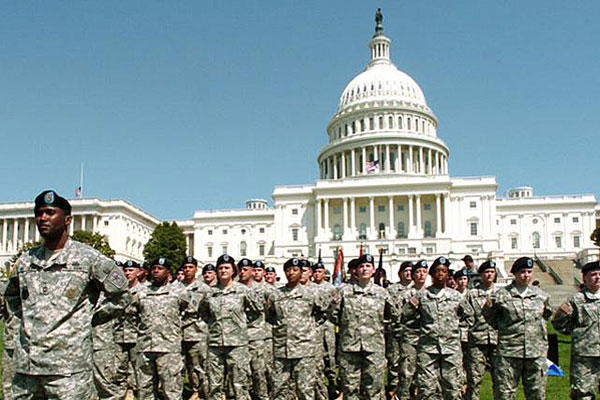Members of the House Armed Services Committee on Thursday accused the Pentagon of deliberately ignoring the Pay Our Military Act by keeping thousands of Defense Department civilians on furlough while the bulk of the workforce returned to work on Monday.
Defense Department officials said not so fast, however, telling lawmakers that the legislation -- which was hastily passed into law just hours before the government shutdown -- was not written clearly enough to cover some 40,000 civilian workers.
Rep. Mike Coffman, R-Colo., said there was no need for the Pentagon to furlough hundreds of thousands of civilian workers when the government shutdown began Oct. 1. The Pay Our Military Act, a law that emerged from a bill Coffman sponsored three days before the shutdown began, was supposed to protect all DoD workers from furlough, Coffman said at an Oct. 10 hearing.
“My bill cast as wide a net as possible to ensure that the department’s civilian personnel -- all of whom are necessary to support military operations -- can report to work,” Coffman said. “On day one of the shutdown, the Pentagon furloughed the vast majority of its civilian workers in violation of the law.”
Robert Hale, the under secretary of defense, comptroller, said that just wasn’t possible under the Pay Our Military Act.
The bill became law the day before the shutdown took effect, but “there were a number of steps that DoD had to take to implement [the Pay Our Military Act] for civilians,” Hale told lawmakers, describing how the Pentagon worked closely with the Department of Justice to review the new law so it was interpreted properly.
As a result, about 400,000 DoD civilians were furloughed for the first four days of the shutdown. The Pentagon was able to recall about 95 percent of its civilian workers on Monday. Those workers with jobs that didn’t support members of the military remain on furlough, Hale said.
“We concluded that [the Pay Our Military Act] did not provide authority for a blanket recall of all DoD civilians,” Hale said. “If Congress had intended for the recall of all civilians, it should have said all civilians. It did not. And perhaps more problematic, it required the secretary of defense determine who would be recalled.”
After reviewing the Pay Our Military Act, DoD lawyers determined that one group of civilians, “whose work was highly valued and necessary … but provides less direct support for military members,” Hale said. “These civilians were not covered by [the Pay Our Military Act].”
About 7,000 of those affected hold jobs in public affairs, legislative affairs, auditing and jobs that provide support for non-DoD personnel, Hale said.
Close to 35,000 are DoD employees in the Army Corps of Engineers, who continue to work because they are funded by prior-year dollars, which will run out soon, Hale said.
“I want to emphasize that DoD followed the law and implemented the guidance of [the Pay Our Military Act],” Hale said.
Robert Taylor, acting general counsel for DoD, said the legislation was unclear and called for “exercising discretion … to determine who is providing support to members of the armed forces. A simple example is people who are doing wonderful and important work is the civilians who work for the Army Corps of Engineers.”
Rep. Randy Forbes, R-VA., said he didn’t understand how giving the Pentagon some discretionary power would result in thousands of furloughed workers.
“We thought when we said we are giving you discretion, we were doing a good thing,” he said. “Now, we realize we were doing a bad thing.”
Rep. Susan Davis, D-Calif., pointed out that it is common for Congress to consult with DoD when drafting such legislation to avoid misunderstandings.
“In this case, was that done?” Davis asked.
Both Hale and Taylor said they had no knowledge of such consultation, but added that it would have been helpful.
“So in this case, one could surmise that there was no interest of being helpful in terms of what you eventually had to do,” Davis said. “That is discouraging because this is something that is very important.”






























